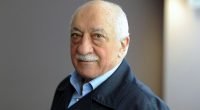News
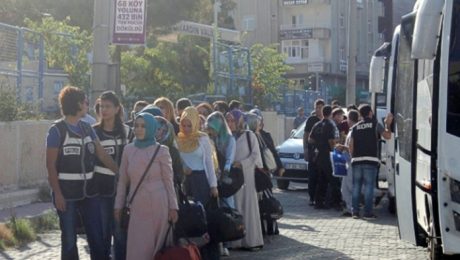
The gov’t in Turkey is committing genocide
Fundamental human rights and freedoms have been suspended in Turkey, people’s right to work, freedom of the press, the right to property ownership, the right to a defense in a court of law, the right to travel and the right to a fair trial have all been annulled while the principle of presumption of innocence has been totally disregarded. People have been subjected to collective punishment through the practice of “enemy law.”

Dutch politicians outraged over new “Gulen-List”
Only days after Prime Minister Mark Rutte and Foreign Minister Bert Koenders’ frantic diplomatic efforts to limit Turkish interference in Dutch society, the Turkish state news agency published a new so-called “Gulen list” on Tuesday. The list contains names of organizations in the Netherlands allegedly affiliated with Fethullah Gulen, which are to be boycotted because they are considered enemies of the Turkish State. Politicians in the Netherlands are furious.

Turkey’s Reichstag Fire
When tanks blocked bridges in the heart of Istanbul and F-16s bombed Turkey’s parliament in Ankara on July 15, Western diplomats were caught by surprise. So too were U.S. forces stationed at the Incirlik Air Base in southern Turkey. The U.S. intelligence community had not an inkling that anything was amiss until the troops started moving.
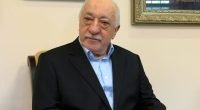
U.S. schools are indirectly linked to preacher, often well-regarded
Even before the revolt, this network was already in Erdogan’s sights. Critics say Gulen gets payments from supporters doing contract work on the schools or from “donations” made by Turkish instructors brought to the U.S. on special visas to teach at them, charges he has rejected. Several charter chains thought to be related to the Gulen movement have been investigated by local authorities for misusing taxpayer dollars, but the inquiries haven’t resulted in charges of wrong doing.

Hate Crime: Lists of “Gulen pupils” circulating in Amsterdam
Lists are circulating in Amsterdam containing the names of Turkish students in Amsterdam schools, with details on who supports Fethullah Gulen and Who Supports Turkish president Tayyip Erdogan. About 150 primary school students did not show up for school this week due to “intimidation and bullying” related to tensions in the Turkish community. The municipality deployed extra education inspectors to visit parents who are keeping their children home from school.
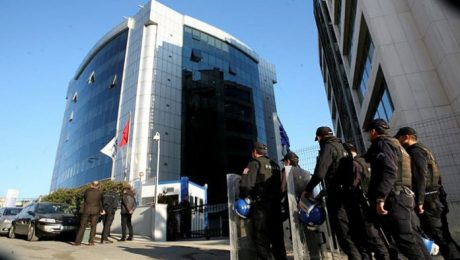
Minister: Turkey confiscated $4 bln worth of Gülenist property
Some TL 12 billion (about $4 billion) in property has been transferred to the Treasury as part of an investigation into the Gülen movement, said Minister for Environment and Urbanization Mehmet Özhaseki on Thursday. Immediately after the putsch, the government along with Erdoğan pinned the blame on the Gülen movement without credible evidence.
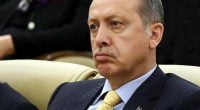
Turkey’s Erdogan exploiting failed coup to crush dissent, tighten grip on power
After a searing summer that has already featured a failed military coup, spectacular terrorist attacks and now a new war across the border in Syria, Turkey’s cultural elite is watching with increased unease as authoritarian President Recep Tayyip Erdogan rides a wave of nationalism that they fear will be used to brand his critics as enemies of the state.

U.S. State Department, Citing Security, Suspends [Fulbright] Teaching Program in Turkey
In the wake of the coup attempt, President Recep Tayyip Erdogan of Turkey has conducted widespread purges of perceived adversaries. As a result, every university dean in Turkey was forced to resign. Some experts have raised questions about whether the university system will be able to function. The ripple effects to American academics are just starting to emerge.
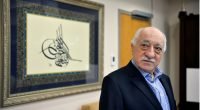
Turkish prosecutor says Gülen movement founded by CIA!
A Turkish prosecutor in İzmir, investigating the financial links of the Gülen movement, which is inspired by the views of US-based Turkish Islamic scholar Fethullah Gülen, has claimed that the organizational structure of the group is the same as that of the Mormon Church and the Church of Scientology in the United States and that all three groups were founded by US intelligence agency the CIA.

Stuttgart police: ‘Boycotts of Gülen-friendly shops are potential hate crimes’
Police in Germany are investigating whether calls to boycott shops owned by supporters of the self-exiled Turkish cleric Fethullah Gülen constitute hate crimes. There are currently 15 open investigations. Police in the southern German city of Stuttgart said Wednesday they were investigating calls to avoid patronizing Gülen-friendly stores, shops and restaurants as potential hate crimes.

Pro-gov’t columnist: Turkish state must assassinate Fethullah Gülen
Fatih Tezcan, a pro-government columnist, said in a video that he is sure the Turkish state had embedded a secret agent in the Gülen movement and that now it is time for him to “terminate” Turkish Islamic scholar Fethullah Gülen. During his 1.08-minute video, Tezcan curses the Gülen movement and the US-based Gülen and says that the murder of Gülen is something desired by the entire Muslim world.

Erdogan’s purges reach heart of Europe as Gulenists in Germany say they are being spied on
With its leafy playing fields and historic buildings on the site of a former British army barracks, the Wilhelmsdtadt School in the Berlin suburb of Spandau could easily be mistaken for a English boarding school.

